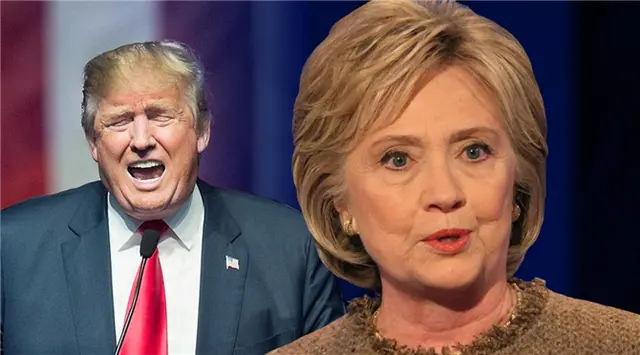U.S. Presidential contenders Donald Trump and Hillary Clinton clinched big victories on Tuesday, keeping momentum strong and widening their lead in the Republican and Democratic primaries.
On the busiest day of the presidential primaries calendar known as "Super Tuesday," a dozen states and one territory hold their nominating contests this year, with 48 percent of Republican and 36 percent of Democratic delegates up for grabs.
Results released after Tuesday midnight showed that real estate mogul Donald Trump has won in seven contests, with double digit leads in several states, a display of dominance over his Republican rivals.
On the Democratic side, former Secretary of State Hillary Clinton took command of the race as she also won seven states. She has increasingly turned her attention to Trump and signaled that she is already looking past the Democratic nominating process.
Despite their sweeping wins on Super Tuesday, neither Trump nor Clinton are on a definite path toward victory, as the real test will come on March 15, when the contenders will vie for winner-take-all states such as Florida and Ohio.
In these states, the contender who wins the overall vote gains all that state's delegates. The stakes are considerably higher there than proportional states, where the delegates are allocated according to the number of votes secured.
If Clinton wins in Florida and garners all the 214 delegates there, her lead over Senator Bernie Sanders would be insurmountable given that most of the 712 Democratic superdelegates, who are free to make up their own minds on which candidate to support, have pledged support to Clinton.
For Republicans, Florida may present the biggest opportunity for the party's establishment to slow down Trump, as the home state of Senator Marco Rubio has 99 delegates at stake, the largest of five prizes up for grabs on March 15.
But a recent poll by Quinnipiac University suggests Rubio has his work cut out for him. Among likely Republican primary voters, it finds Trump leads Rubio 44 to 28 percent.
"Florida is the single biggest prize of the primary season because it is the largest state to allocate its delegates on a winner-take-all basis," said Peter Brown, assistant director of the Quinnipiac University Poll. "If Sen. Rubio can't win in his own home state, it is difficult to see how he can win elsewhere."
At a news conference Friday, Trump said he will do well in Florida because of his real estate investments there and because voters feel Rubio "abandoned" them by skipping Senate votes while pursuing national office.
Campaign analysts said in face of the increasing likelihood of a Trump nomination, the Republican establishment is largely in panic mode, seeking steps to derail his candidacy, including a contested convention or third-party candidacies.
"I try to stay out of the ups and downs of the primary, but I've also said when I see something that runs counter to who we are as a party and a country, I will speak up," Paul Ryan, Speaker of the U.S. House of Representatives, said Tuesday.
"If a person wants to be the nominee of the party, there can be no evasion and no games. They must reject any group or cause that is built on bigotry," the Republican Speaker said, without mentioning Trump by name.
 简体中文
简体中文

